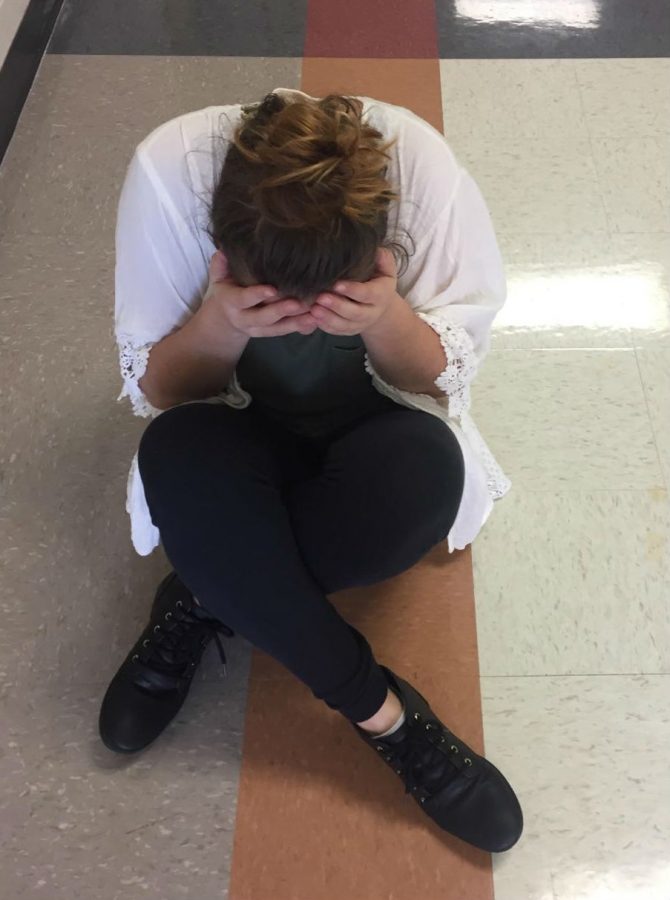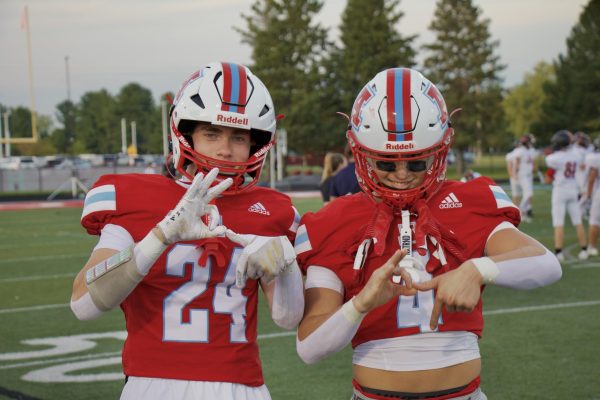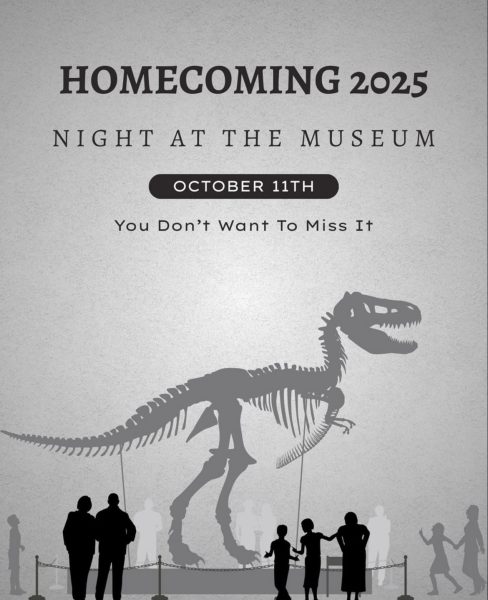Self-Esteem At An All Time Low, Studies and Students Say
High school students can constantly be found on their phones. But is there a connection between technology and self-esteem in today’s high school students?
In media we can hide. Mike Ward, and Arrowhead high school guidance counselor, says, “Social media (definitely has an influence on teens). I think if somebody gets something from somebody else or a friend it can go the wrong way. They’re words, they’re words you can hide behind. And words can be tough.”
Does this ability to hide behind our words increase self-esteem issues? Is technology putting self-esteem at an all time low? Elizabeth Kesses, a writer for the Huffington Post thinks so. In her article “Why It’s Harder Than Ever For Teens Today: Is Self Esteem At An All Time Low?” she explains the differences of causes of insecurity between her teen and adult years. She says bullies are the reason she never felt good enough but now it is worse.
Bullying and causes of insecurities have gone viral. Elizabeth Bernstein, a writer for the Wall Street Journal, wrote “Why Are We So Rude Online.” She says, “Anonymity is a powerful force. Hiding behind a fake screen name makes us feel invincible, as well as invisible. Never mind that, on many websites, we’re not as anonymous as we think—and we’re not anonymous at all on Facebook. Even when we reveal our real identities, we still misbehave.”
A Huffington Post article titled “Facebook Psychology: 7 Reasons Why We Act Differently Online” says most people act differently online than they do in person. Why? Sherry Turkle, psychologist and Massachusetts Institute of Technology professor of the social studies of science and technology, says, “We’re less inhibited online because we don’t have to see the reaction of the person we’re addressing.”
Carol McGraw, author of the article “Media, hormones, peer pressure do a number on girls’ confidence” from the New Sentinel, says, “Girls’ confidence peaks at age nine.”
The social research blog for SISGI group has an article titled ‘What About the Boys?” that outlines the societal notion that boys don’t have self-esteem issues isn’t true.
Joe Kolanowski, an Arrowhead senior, says, “Most people focus only on girls with low self-esteem.”
Sophie Carey, an Arrowhead junior, says, “I think that it’s a societal stereotype that boys have high self confidence. In the media, many boys are portrayed as overconfident. I believe that this actually furthers some men’s arrogance, as they believe they should act like that, but I think that the majority of boys have self esteem issues as well. I don’t think that one gender has a lower self esteem, but I do believe that more girls have a low self esteem because of media portrayals of arrogant males, and because I believe that boys are treated differently from girls as children, and are more often told to share their opinions and speak up, so they don’t question themselves as much as girls might. ”
Ward says, “[Students feel insecure about] any number of things. There are so many variables to what students feel insecure about.”
Gay Frankenfield writes on WebMD, “Obese boys and girls have significantly lower self-esteem than their nonobese peers at age 14.”
The website Heart of Leadership in “Statistics on Body Image, Self Esteem, and Parental Influence” states 80% of kids at age 10 are afraid of being fat. Another statistic is that 90% of girls age 15 to 17 want to change at least one aspect of their physical appearance and nearly a quarter would consider going under plastic surgery.
Sophie Carey, an Arrowhead high school junior says, “I think almost all high school students have low self esteem based on physical appearance and how people see them.”
Heart of Leadership shows other statistics on students trying to change their looks. Such has up to 13% percent of girls age 15-17 acknowledge they have an eating disorder,up to 12% of teen boys are using unproven supplements and/or steroids, and 90% of junior and senior girls diet regularly.
Ward says “A student can get on a metal piece in a bathroom, and it’s a scale. They get on that scale and boom they got low self-esteem. From some stupid piece of metal that has a dial. Some people walk off that scale and their self esteem is down right away.”
So, besides body image what else causes low self-esteem? Sophie Carey, an Arrowhead Junior, says, “I think that pretty exclusive to high school students is low self esteem about intelligence and achievements. Students push themselves so hard to do well academically, and when they fail, they take it very hard and believe they are stupid and won’t get anywhere in life.”
The website Stage of Life High School has a statistic to agree with Carey’s comment. They state 95% of students felt inferior at some point in their lives and 38% of those said it was because of their intelligence.
So, why do students feel this way? Ward says, “Social media for sure. I think if somebody gets something from somebody else or a friend it can go the wrong way. They’re words, they’re words you can hide behind. And words can be tough.”
The Child Mind Institute has an article titled “How Using Social Media Affects Teenagers” and that article explains experts are worried that social media and text messages have become so integral to teenage life that they are lowering self esteem.
Carey says, “I think that self esteem issues based on appearance are initiated by the media and societal standards, as well as comments made or treatment by peers or people in their lives. Students who are rejected by others tend to believe that they aren’t attractive, and that could also be a result of the little things that we don’t think about. A comment about weight or appearance, or how much or little someone is eating tends to make someone question how they look and what others think of them. Low self esteem about achievements in life or potential in the future or intelligence in general, I believe has been caused by pressure and treatment by older generations. Students are constantly told that they need to go to college, they need to get good grades, they need to make money, and when students believe that their chance at that has been threatened, by a bad grade or missing assignment, students think that they are incapable of fulfilling these expectations and consider themselves failure. Also, I think that low self esteem about intelligence was set up by treatment at young ages, when kids were told that they were gifted students, and that they were highly intelligent, and they didn’t work very hard in middle school, but because of that, those students’ grades suffered in high school and they began to question how intelligent they actually were.”
So, it is clear students in high school deal with pressures. These pressures lead to insecurities. When it comes dealing with insecurities each has their own way. Ward says, “People deal with self-esteem in many different ways. We have four great people in this office and their doors are always open.”









